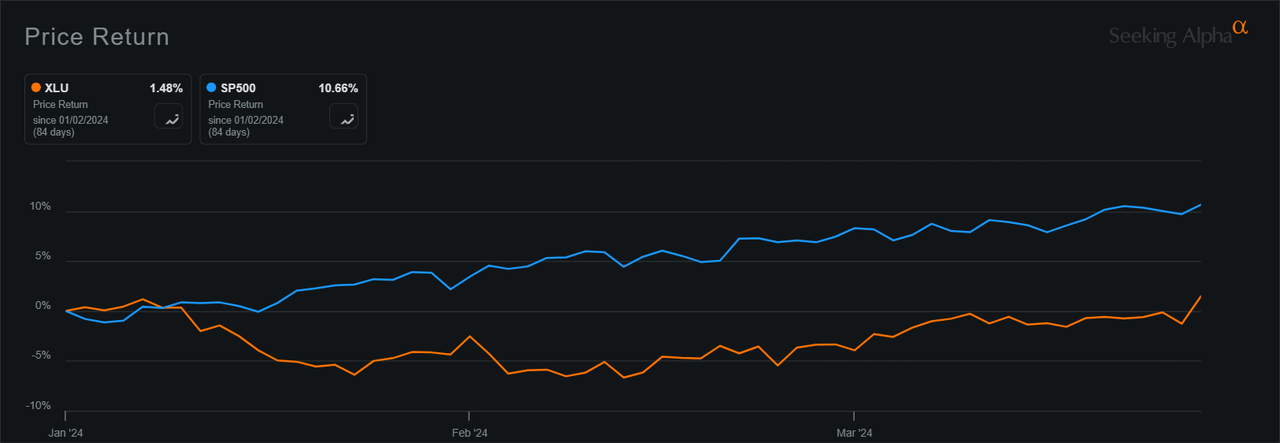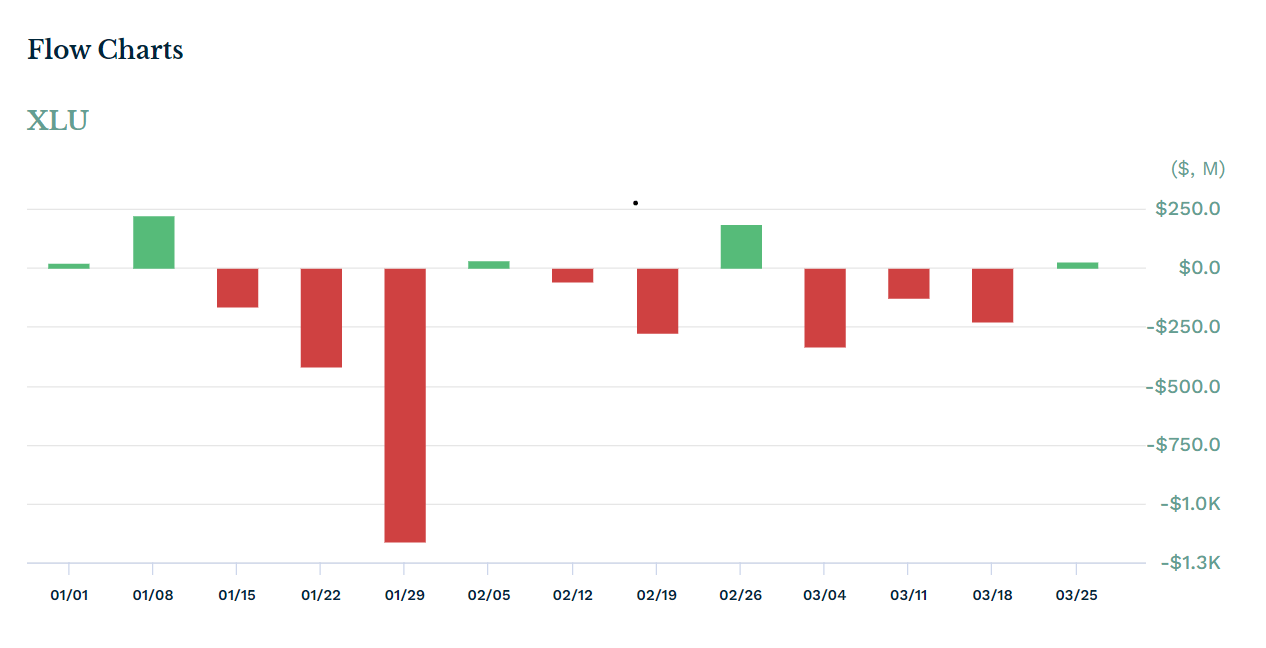The Utilities Select Sector SPDR Fund ETF (NYSEARCA:XLU), which tracks the S&P 500 utilities sector, rose about 1.5% in the first quarter of 2024, coming way below the performance of the broader S&P 500 index, which increased by 10.7% during the same period.
The ETF had fallen 10.2% in 2023, while the benchmark index rose 24.7% for the same period.
The index, which has companies ranging from electricity providers to water suppliers, comes in second last among top performing S&P 500 sectors year-to date.
XLU has $11.92 billion in assets under management as of March 28, 2024, and among its largest components are NextEra Energy (NEE), Southern (SO), Duke Energy (DUK), Constellation Energy (CEG) and Sempra (SRE).

U.S. stock fund flows into and out of the utility sector have been in the red for the most part in Q1. The utility-focused ETF had a net flow of -$2,255.96 million till date.

Top movers YTD
- Gainers: Constellation Energy (CEG) +58.14%
- NRG Energy (NRG) +30.93%
- Public Service Enterprise Group (PEG) +9.21%
- American Electric Power (AEP) +6.01%
- FirstEnergy (FE) +5.35%
- Losers: Xcel Energy (XEL) –13.18%
- American Water Works (AWK) -7.41%
- PG&E (PCG) -7.04%
- AES Corp (AES) -6.86%
- Sempra (SRE) -3.88%
What Quantitative Measures Say
XLU received a Hold rating from Seeking Alpha’s Quant Rating system with a score of 2.89 out of 5, supported by A+ in liquidity, and A in the expenses’ category. The ETF got a C+ for momentum, an A+ for dividends but a D- for risks.
What Analysts Expect
Seeking Alpha contributor Skeptical 12 in their March 13 report said that the ETF Utility has underperformed the S&P 500 since 2021, offering investors only 11.41% total returns compared to the S&P 500’s 35.76%.
“I am initiating coverage of XLU today with a sell rating. The utility sector has struggled for multiple reasons with increased costs, higher rates, and the rising capital expenditure levels as well. This sector also faces more regulatory scrutiny with consumers more concerned about price levels as well. Prices remain high if with inflation rates falling over the last year, and this sector is still likely to consistently underperform the S&P 500 and other more appealing income investments even if Powell begins to ease monetary policy.,” the contributor wrote.


